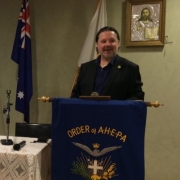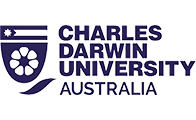Dr Diamadis Panayiotis

Australian Institute for Holocaust and Genocide Studies
Pontian regional identity amongst the Australian Hellenic Diaspora into the 21st century
Abstract
2024 marks the Centenary of the end of the Genocide of the Hellenes (1914-1924), the state-orchestrated campaign of extermination of the indigenous Hellenes of Thrace, Anatolia and Pontos by the Ottoman and Republican Turkish governments. In tribute to the survivors of the Genocide, this illustrated paper will focus on the development of Pontian regional identity as a sub-set of Australian Hellenism in the 2020s and beyond. This paper presents the findings of the second stage of the study on the Pontian, Asia Minor and Thracian regional identities, first presented at the 2022 CDU Conference on the Hellenic Diaspora.
A number of interesting aspects emerge from the research into the development of Pontian regional identity in the Australian context. Firstly, and most importantly, development of this identity is driven by personal attachment to the folklore of this unique regional culture, particularly the music and dance of Pontos. Secondly, this development – as opposed to ‘maintenance’ – is being driven by young people with distant or no family ties to the land of Pontos. For a number of reasons, which will be explored, young Australian Hellenes (typically third-generation Australians) who do not identify as ‘Pontian’ are the driving force behind the development of of Pontian regional identity as a sub-set of Australian Hellenism in the 2020s and beyond.
Thirdly, constituting a diaspora community within a diaspora community, Australian Pontian Hellenes have resisted the ‘modernisation’ and ‘Australianisation’ of their identity more resolutely than almost every other sub-set of Australian Hellenism. Lastly, while Pontian regional identity existed on the fringes of Australian Hellenism for decades, since the 2010s it has moved very much into the centre of Australian Hellenic cultural activity. Pontian music and folkdance are regular features of community events organised by Australian Hellenic community and governmental organisations. In the words of an old Pontian song of mourning, «Η Ρωμανία κι αν πέρασεν, ανθεί και φέρει κι άλλο» (The Roman Empire may have passed; it blooms and brings another).
Biography
Dr Panayiotis Diamadis was born, raised and educated in Sydney, completing four qualifications at The University of Sydney, the highest being a Doctorate. This PhD thesis and chief research interest is the Genocide of the indigenous Hellenes of Pontos, Asia Minor and Thrace, together with the Genocides of the indigenous Armenians and Assyrians of the Ottoman Turkish Empire. Of particular interest to Diamadis are the Australian interactions with the Hellenes, Armenians and Assyrians in their homelands since the 19th century. Diamadis is a Board Member of the Australian Institute for Holocaust and Genocide Studies, amongst other education and community roles.


